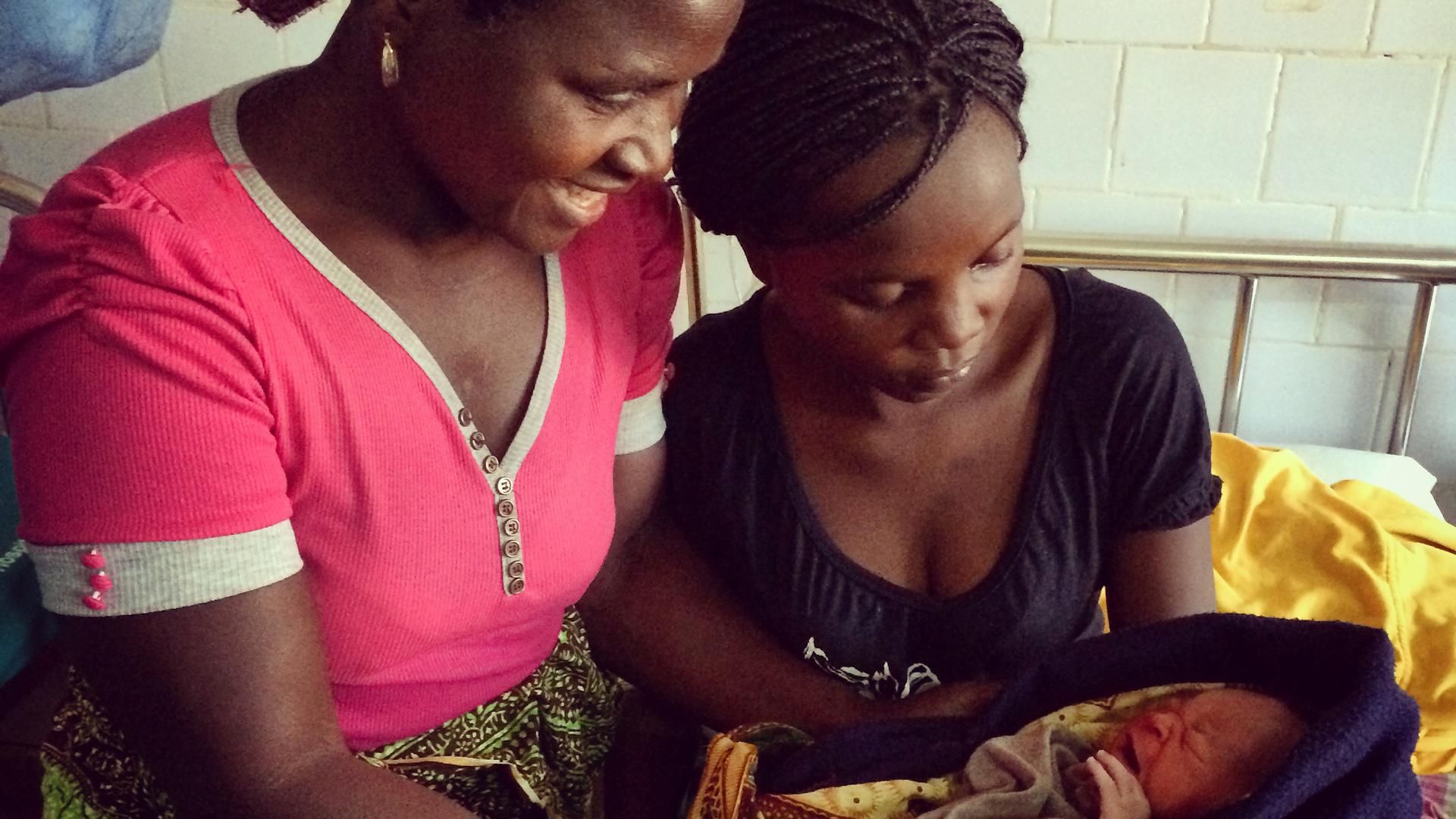Photos show the struggles women in Mozambique face getting health care
Mother Gilda Maviango, age 20, right, gave birth to a healthy baby just a few hours before I took this photograph. Here, her grandmother Salfina happily welcomes the child, born at Chokwe hospital in Mozambique. Gilda will be discharged from the ward in less than 24 hours to make room for other pregnant women. About a year ago, Gilda’s first baby died at 11 months due to diarrhea. It’s one of the biggest causes of death among children around the world. When the baby got sick, the family tried to seek treatment, but help came too late. For this birth, all the women in the family gathered in the maternity ward, but no men were around.
While reporting on global health in Mozambique last month, I decided to create a personal, raw series of photographs with my iPhone. I wanted these images to illustrate the challenges women and children face in one of the least developed countries in the world.
I photographed mothers who walked miles to get treatment, women with several children who said their husbands left them to find other wives in neighboring South Africa, and teenage moms who looked like children themselves.
Then there were the uplifting tales. I met women who had become leaders in their communities, including a health worker who aspired to go to college. I met nurses who spent hours delivering babies in a rural hospital with a broken ultrasound machine and no incubator.
At a hospital in Chokwe, hours north of Mozambique's capital, I saw mothers gently feeding their newborns, with all their female family members by their side. They smiled and laughed, and caressed the baby.
One of the most haunting and powerful moments was witnessing a baby's birth and his near death. I watched as nurses rushed the asphyxiating newborn to another room and struggled to resuscitate him. They pumped air into his nose and mouth using a plastic squeezable bag and face mask. After about 15 minutes, the baby made a sound, which soon turned into loud, healthy cries. The nurses were ecstatic.
"We have this desire, this willpower to save the lives, even though we lack equipment and technology," said nurse Hanorate Remane. "Today, we saved the life of a baby with no resources."
"This is our duty, our wish is to save the life of this baby," she said.
Mozambique, a former Portuguese colony, ranks near the bottom of the Human Development index, which measures everything from life expectancy to education in 187 countries. In Mozambique, the fertility rate exceeds five children per woman and a woman has a 1-in-41 risk of dying in childbirth — more than 40 times the risk in the US.
On Monday, the world marked 500 days until the deadline to achieve the UN's Millennial Development Goals, a plan designed to fight poverty, disease, and hunger and empower women worldwide. Two of those goals: Improving maternal health and reducing child mortality.
Nilza Munambo, another nurse, said she left her family in the capital city of Maputo to work at this rural hospital. I asked her what went through her head as she tried to ventilate the newborn.
"A mother waits for a baby for nine months, so I have to save mom and baby," she said. "I haven't lost a baby today," she said, relieved as she ended her long shift.
Sonia Narang's trip to Mozambique was supported by the International Center for Journalists (ICFJ) and the UN Foundation. Follow her "Women of Mozambique" Instagram series here. To continue the conversation about late pregnancy and childbirth in places around the world, join The World's Ninth Month community on Facebook.
